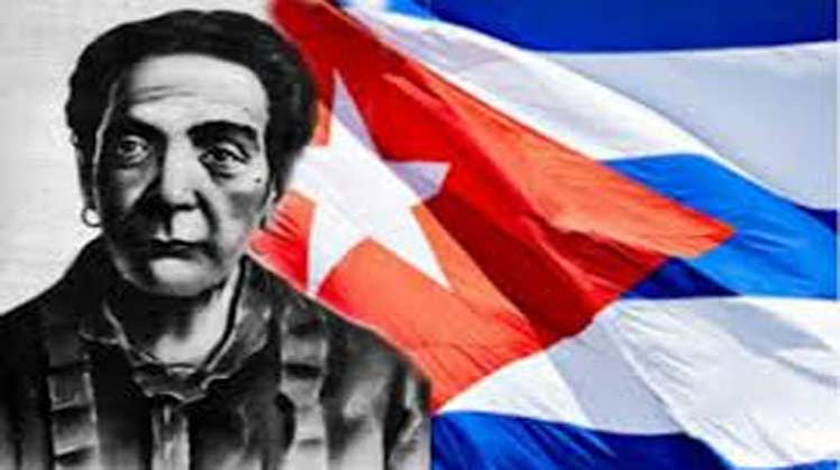
Mariana Grajales was born on July 12, 1815, in Santiago de Cuba, in one of the darkest moments of the Spanish colonial period, marked by discrimination and exploitation.
By then a reformist ideology was developing in the island among some representatives of the landowning ruling class who advocated the liberalization of the colonial administration, but failed to condemn the slave system and the repressors of uprisings of black slaves such as the Aponte conspiracy in 1812, which was drowned in blood.
Mariana was able to receive the basic education available then to free blacks and mulattos. She also had a religious and ethical education from her parents, who instilled in her the abhorrence of slavery and colonial exploitation and the patriotic principles, which this brave and determined woman conveyed to her own children years later.
In 1843 she married Marcos Maceo, a peasant of advanced ideas like her, and went to live in his farm in the municipality of San Luis. In 1845 the first born was born: Antonio, followed by José, Rafael, Miguel, Julio, Tomás, and Marcos, and three girls: Baldomera, Dominga and María Dolores. Theirs was a large, harmonious family united under the common ideal of Cuban independence.
From the beginning of the independence conspiracies prior to the uprising of October 10, 1868, the Maceos joined the revolutionary preparations out of their loyalty to the oath they had sworn to Mariana: "On our knees all of us, parents and children, before Christ, who was the first liberal man who came into the world, let us swear to liberate the homeland or die for it".
They all took part in the War of 1968 and most fell in combat. Mariana’s husband Marcos was the first to offer his life. Baldomera and Dominga also joined the war, working in field hospitals.
History has it that when Antonio was wounded in combat for the first time he told his youngest son Marcos: "Get ready, it is time for you to fight for your country like your brothers".
Mariana herself, despite her advanced age, treated the wounded in the field hospitals and supported the Bronze Titan in the historic Baraguá Protest on March 15, 1895. Her son Rafael, who participated in the Small War in 1879, was sent to the prisons of Chafarinas, in Morocco, where he died in 1882.
Only four of Mariana’s offspring were left when the Necessary War broke in 1895: General José Maceo and Lieutenant General Antonio, who in July and December 1896, respectively, fell in combat, and Tomás and Marcos, who survived their many wounds.
José Martí met Mariana while in exile in Jamaica, where she died on November 28, 1893. About her last days he wrote: "From the mother, more than the father, comes the son (...) but Maceo was happy because he came from a lion and a lioness. His mother is already falling, the glorious old lady is already falling in the indifferent foreign corner, but she still has the hands of a child to caress whoever talks to her about the homeland (...)".
Today Mariana Grajales is recognized as the Mother of the Homeland. Her sublime example accompanies the intransigence of today’s independence fighters who defend and save the Cuba that she loved so much and to which she consecrated her life and that of her family.
Sidebar

 Agencia Cubana de Noticias
Líder en información nacional
Agencia Cubana de Noticias
Líder en información nacional








Nos reservamos el derecho de no publicar los comentario que incumplan con las normas de este sitio